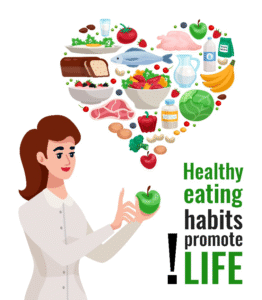You’re not even hungry—but suddenly, you’re reaching for a snack.
It might be the middle of a stressful workday… or just a slow afternoon at home. Whatever the trigger, you find yourself grabbing chips, sweets, or something comforting—without thinking twice. That’s emotional cravings at work.
You’re not alone. Emotional eating is incredibly common, and understanding the difference between physical hunger and emotional urges is the first step toward breaking the cycle. At InShapeMD, we help people identify these patterns and offer both medical and behavioral support to restore healthy habits.
Let’s walk through what emotional cravings feel like, how to tell the difference from true hunger, and how we help you take control again—with tools that go beyond willpower.
Emotional Cravings: What They Feel Like
Emotional cravings aren’t driven by a physical need for food—they’re triggered by something deeper. Maybe it’s stress, sadness, boredom, anxiety, or even celebration. The feeling often comes on suddenly and feels urgent. You might crave specific “comfort foods” like ice cream, chips, or pizza—not a balanced meal.
Here are some signs you’re dealing with emotional cravings:
- It comes out of nowhere
- It’s tied to a mood or situation, not physical hunger
- Only certain foods sound appealing (often sweet, salty, or high-fat)
- You feel an urgent need to eat right away
- Eating brings temporary relief—but may be followed by guilt or regret
Emotional cravings can become a habit—something we turn to automatically in response to certain feelings or routines. But the good news is that habits can be understood, reworked, and replaced.

Physical Hunger: What’s Really Going On
Physical hunger is your body’s natural way of signaling it needs fuel. It tends to develop gradually and doesn’t usually come with intense cravings for one specific food.
Here’s how physical hunger typically shows up:
- You notice low energy or a growling stomach
- You’d be satisfied with a variety of foods—not just one
- Eating improves your energy and mood long-term, not just in the moment
- You feel better after eating, not worse
Understanding how to recognize true hunger versus emotional cravings is a powerful first step. But even when you know the difference, it’s not always easy to change the pattern on your own.
How to Tell the Difference in the Moment
When you’re standing in front of the fridge or snack drawer, try this quick self-check:
- Did this hunger come on slowly—or all at once?
- Would any food satisfy me—or just one specific thing?
- Am I bored, tired, stressed, sad, or anxious?
- Did I eat a balanced meal recently—or am I fueling up again emotionally?
- Do I want food—or do I want comfort, distraction, or relief?
These questions help you pause and think before reacting. And sometimes, just that pause is enough to shift the pattern.

How We Help You Break the Cycle
At InShapeMD, we’re a trusted medical weight loss clinic in San Angelo, Texas, and we offer more than education—we provide real, science-backed tools to help you take back control over your habits.
Appetite Suppressants
When emotional cravings are frequent, prescription appetite suppressants for weight loss can reduce impulsive urges and help you reset your hunger cues. These are prescribed based on your medical history and current needs.
Peptide Therapy
Our weight loss peptide service includes options that naturally regulate appetite and metabolism. Certain peptides may support leptin and ghrelin balance—hormones that influence both hunger and satisfaction.
NAD+ Therapy
Stress, brain fog, and emotional fatigue can increase emotional eating. NAD+ therapy supports brain and mood health at the cellular level, helping you feel sharper and more in control.
Nutritional Coaching & Support
We also offer one-on-one guidance to help individuals understand emotional eating triggers, identify patterns, and replace habits with healthier coping tools.
Whether you’re struggling with nighttime snacking, stress-induced eating, or low energy that leads to cravings, our multi-layered approach gives you real solutions—not band-aid fixes.

It’s Not Just Willpower—It’s Science
If you’ve been blaming yourself for emotional cravings, let this be a reminder: it’s not a lack of willpower—it’s a pattern rooted in your biology, emotions, and habits. And all of those can be supported with the right tools.
At InShapeMD, we help individuals understand and overcome emotional eating with a comprehensive care model—combining medical support, behavioral coaching, and real accountability.
You don’t have to figure this out alone. Let’s work together to reset your relationship with food—and feel better, inside and out.


